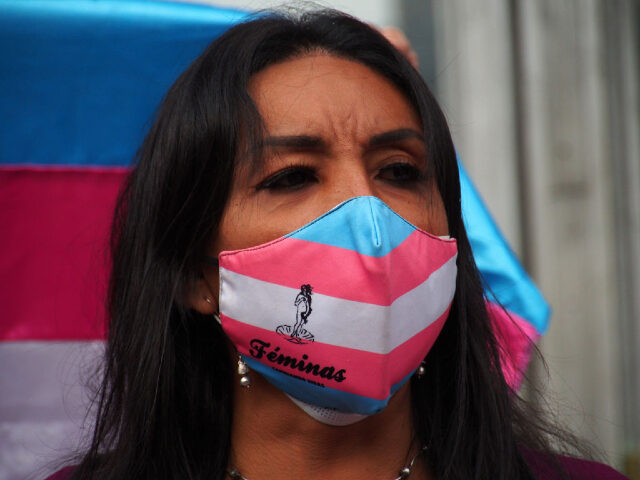Brazil’s top court, the Supreme Federal Tribunal (STF), overturned a local law in the state of Rondônia on Friday that prohibited the use of “gender neutral” language in the region’s public or private schools and other local educational institutions.
The law, which also extended to private companies and public tender notices, was originally proposed and passed in 2021 but suspended via an injunction granted by STF Minister Edson Fachin shortly after its passing. Fachin also acted as the rapporteur of its overturning, with all STF judges unanimously voting in favor.
The 11 STF Justices declared that the state law violated the Brazilian Constitution, alleging that it is up to Brazil’s education union to legislate on the country’s teaching standards.
Similar to other Romance languages, the Portuguese language — Brazil’s national language — uses masculine and feminine genders, meaning nouns, pronouns, articles, and adjectives are spelled in certain ways based on their classification as masculine or feminine. Some words can be modified to be both; for example, adjectives, or nouns describing groups of people that can be modified to feminine when all the members of the group in question are female.
“Gender neutral” or “inclusive” language, as promoted by leftists and progressive groups across the world, seeks to erode the basic rules of grammar in languages such as Portuguese or Spanish that do not have a neuter gender (English, for example, does not use gender with articles but does have a third, gender-neutral pronoun, “it”). “Gender neutral” language would replace words in Portuguese with incorrectly spelled “neutral” versions to allegedly “include” people who do not identify with said gendered nouns.
In the case of the Portuguese language, it is done by replacing the “gendered” vowels in a noun, such as “o” or “a,” with “neutral” ones such as “e” or “u.” In some extreme cases, the letter “x” or the “@” symbol are used to replace the gender-assigning vowels — which make the changed words unpronounceable in their respective languages and unreadable by text-to-speech accessibility systems often used by blind people.
The most prominent leftist attempt to pressure English-speakers into using “gender neutral” language is the failed term “Latinx,” which seeks to eliminate gender out of the word “Latino” or “Latina.” The term is overwhelmingly rejected by Hispanics, with only one percent of Hispanics choosing to identify as “Latinx” as of January 2022. “Hispanic” is a gender-neutral alternative for “Latino,” one supporters of “Latinx” reject for alleged anti-colonialist reasons.
During the STF vote, Edson Fachin stated that “gender neutral” language aimed to combat “linguistic prejudices,” removing biases that allegedly subordinate one gender over another.
“Its adoption has been frequent especially in public bodies of various countries and international organizations,” Fachin asserted.
The STF justice reasoned his overturning of the law by stating that the law could not go against the basic guidelines established by Brazil’s National Confederation of Workers in Teaching Establishments (CONTEE), which originally introduced the injuction that suspended the law in 2021 claiming that “gender neutral” language was not a “fad” nor was it linked to any political party or ideology.
“Whoever gives himself to the elementary and necessary care of seeking to understand the neutral language, from its insertion in social reality, patient, alive and insusceptible to be imprisoned, of course, without the breastplate of intolerance, hatred and denial of diversity, will surely reach the conclusion that it contains nothing of fad, partisan and ideological character,” CONTEE stated in the 2021 injunction.
Fachin also reasoned that although Brazilian states can jointly legislate on education, “they must obey the general norms issued by the [Education] Union.”
Shortly before the state law was overturned by the STF. former Brazilian Congressman Eyder Brasil, who authored the now-overturned law, defended the law by asserting on Friday that “gender neutral” language “distanced people even more” and was responsible for “polarizing our society.”
The state of Rondônia is not the only Brazilian region that has passed a law banning “gender neutral” language in schools.
The government of the state of Mato Grosso do Sul passed a law banning the use of “gender neutral” language in January 2022. The state of Paraná approved a similar law project in December 2022, still pending to become law but now jeopardized by the STF ruling. In the state of Maranhão, the local legislature approved the project in December 2022 but was vetoed by the state governor in January 2023.
A study published by Brazilian news network G1 in January showed that 45 bills against gender neutral language were introduced by Brazilian state legislatures between January 2020 and February 2022.
Christian K. Caruzo is a Venezuelan writer and documents life under socialism. You can follow him on Twitter here.


COMMENTS
Please let us know if you're having issues with commenting.